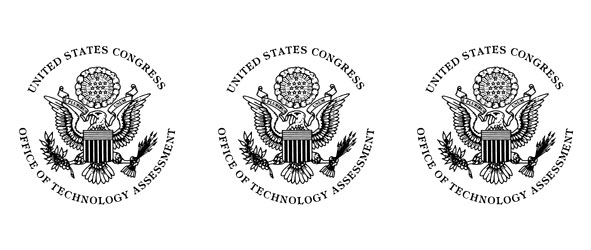By Madison Gable
The Office of Technology Assessment was nixed at outset of the Internet age, and America is facing the consequences.
Facebook CEO Mark Zuckerberg’s April Congressional hearing did not clarify or solve much in the way of data privacy issues. In fact, the Senate committee hearing became the punch line in a series of jokes about the Senate’s complete lack of information on some of the basic tenets of Facebook’s business model and privacy settings.
The questions from most senators were far from hard-hitting, and some were phrased so incorrectly that Zuckerberg was able to evade answering the question. Sen. John Kennedy proposed a number of changes to Facebook’s privacy settings that Zuckerberg was forced to continuously explain were already in place. Sen. Orrin Hatch asked how Facebook “sustain[s] a business model in which users don’t pay for your service?”, to which Zuckerberg responded, “Senator, we run ads”. Some senators made it clear that they were under the impression that Facebook directly sold its user data.
In spite of a few bright spots−for example, Sen. Kamala Harris’s more tailored questions concerning Facebook’s choice not to inform users about the Cambridge Analytica data breach in 2015−the main takeaway from this hearing was that Congress knew little about how Facebook worked or how to realistically pursue data privacy measures.
Information privacy is a complex issue, and while some of the more basic facets of the Cambridge Analytica data breach can be understood with minimal research, understanding the technological side of the incident is trickier. What makes our networks vulnerable to third parties poaching our personal information? What amount of data are we giving away when we sign up for or even just use certain services online? Most Americans do not have a solid grasp on the answers to those questions. Congress clearly does not and fixing the problem is partially their responsibility.
Of course, data privacy is not the only issue on the docket for any senator. Whatever we did see during the Senate hearing, it did not resemble an unbiased, expert assessment of Facebook’s role in the disintegration of online privacy. The Office of Technology Assessment could have filled in the gaps here and prepared the Senate for the hearing with research and a list of potential policy proposals. Unfortunately the agency was nixed in 1995, when former Speaker of the House Newt Gingrich defunded the agency in the name of rebalancing the budget. After the budget cut, House Rep. Amo Houghton, a supporter of the agency said, “We are cutting off one of the most important arms of Congress when we cut off unbiased knowledge about science and technology.”
The Office of Technology Assessment (OTA) fell out of political favor with some Republicans when in 1984 it reported research that showed Ronald Reagan’s Strategic Defense Initiative was an implausible measure. In 1988 the OTA went so far as to say the Strategic Defense Initiative could potentially be a “catastrophic disaster”. The Atlantic quoted an academic article from the Bulletin of the Atomic Scientists, asserting the agency was done away with for political reasons because the agency’s absence would allow for the use of ideologically slanted research from interest groups and think tanks.
The OTA was established in 1972 and represented a bipartisan effort to respond to a rising number of legislative issues laden with technological complexities, such as issues regarding airport security technologies, stem cell research, and public health concerns. While the agency was relatively small, it was able to work seamlessly with Congress because it was designed for prime integration into Congressional debate. The OTA was supervised by the Technology Assessment Board, an entity made up of six Senators and six Representatives and comprised of an even three from each party within those six.
The OTA helped guide Congressional debate but was never restrictive. The agency simply ruled out scientific inaccuracies from the conversation and presented a variety of policy solutions without advocating for one over the other. The OTA has a legacy of improving both Medicare and Medicaid to expand coverage of prenatal care for women in poverty as well as coverage of mammograms for senior women.
It is unfortunate that Congress did away with the OTA just as its presence became more necessary than ever. In a world that is growing increasingly connected through technology, it is unwise to allow Congress to draft legislation without politically unbiased research. Former House Representative Rush Holt summed up the problem succinctly, saying, “It is just the height of self-imposed ignorance that Congress would insist on doing without the OTA.”
Throughout the years many media outlets and political pundits have called for the reinstatement of the OTA. The argument inevitably resurfaces every so often, as the research the agency provided is sorely missing in our current political environment, in our post-truth age. Zuckerberg’s congressional hearing emphasizes the need for a reliable research authority on tech more than ever, as it becomes apparent that America’s policy-makers simply do not know much about the networks serve as the very infrastructure of our society.
